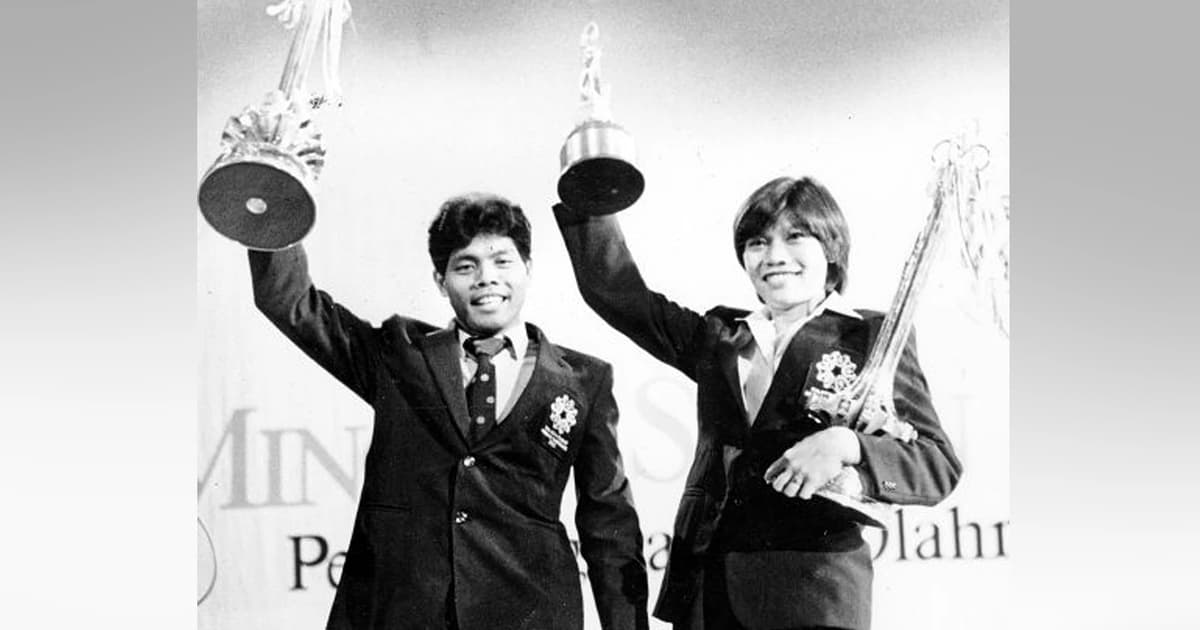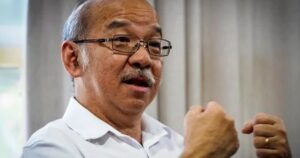
Malaysia Athletics (MA) has apologised. Again.
This time it has dug itself into a quandary, caught between words of apology and the weight of unpaid debts
The first public apology came last week for P Savithri, whose 1971 SEAP Games gold and silver vanished, taken for an exhibition by an official at the time.
Yesterday, it went further, expressing regret over unpaid cash prizes of RM5,000 promised to sportsmen and sportswomen of the year between 1966 and 1982.
A press statement followed, pledging a task force, outreach to athletes, advocacy with the government, and policy review.
It sounds responsible. It is not yet credible.
Apologies matter. Action matters more. Transparency matters most.
At the heart of this controversy is not just missing money. It is broken promises, dishonoured champions, and an association that struggles to meet the most basic standards of accountability.
Confusion, sidestepping action
The original awards were launched on the advice of Tunku Abdul Rahman and managed first by the sports ministry, then by the national sports council (NSC) from 1971.
The sports ministry organised the cash prizes and channelled them to the Olympic Council of Malaysia, which in turn disbursed funds to the relevant national sports association (NSA).
Some argue the money was meant for the NSAs. Others insist it was for the athletes directly.
Complicating matters, athletes risked losing amateur status if they accepted the funds.
Race walker V Subramaniam says he was told the Malaysian Amateur Athletics Union (MAAU) would release the money only upon retirement.
Decades later, the confusion still clouds the facts. MA’s press statement underscores this ambiguity.
It promises “structured advocacy with government partners,” positioning MA as a catalyst rather than a principal actor.
MA says it will write to the minister of youth and sports and the NSC, requesting that the government, as the “rightful body,” allocate funds to honour historical commitments.
The statement emphasises that ultimate responsibility lies with the original awarding body.
In short, MA has framed itself as intermediary while sidestepping material action.
Advocacy cannot replace repayment. Letters do not restore decades of lost dignity.
Test of integrity
The statement continues with promises of a task force, athlete outreach, and policy reviews. All of that looks good on paper.
But athletes do not need gestures or committees — they need the prize money owed, adjusted for delay and interest, delivered directly.
Words without action are hollow. Integrity cannot be abstract; it must be exercised in deeds.
The RM5,000 promised in 1966–1982 is not RM5,000 today. Any settlement must reflect that reality.
That is the minimum measure of respect owed to men and women who carried Malaysia’s flag when recognition, resources, and rewards were scarce.
Legends like sprinters Dr Mani Jegathesan, M Rajamani, Rabuan Pit and Junaidah Aman, and race walkers Khoo Chong Beng and Subramaniam are more than names on a trophy.
They brought Malaysia international recognition at a time when global acclaim was rare.
They were each promised RM5,000. Many received nothing. Subramaniam lives on a RM430 pension, too meagre to match his contributions.
The issue stretches beyond athletics. Bowling icon JB Koo claims his entire award was withheld. Badminton star Sylvia Ng received nothing. Hockey’s M Mahendran got just RM170.
Cycling legend Ng Joo Ngan received RM500, with the remainder held by the Malaysian National Cycling Federation until FMT reporting forced action.
One association has acted; others, despite pledges, have yet to deliver.
MA’s moral stance that it is not legally bound by MAAU’s debts is irrelevant. Institutional stewardship is not confined to what is convenient.
To inherit a sport’s history is to inherit its debts of honour. Saying, “We were not there” or “The government should pay” fails the test of integrity.
Leaders are judged by what they do when no one is watching, not by how cleverly they frame inaction.
Respect is not given in speeches or statements. It is earned in action.
The principle matters. The symbolism matters. Broken promises sting longer than any medal tarnishes.
Today, billions are poured into sporting infrastructure, foreign coaches, and international exposure.
Yet the most basic duty — honouring those who built the nation’s sporting pride — remains unmet. That is hypocrisy of the highest order.
True reform is immediate, full, and visible. It restores faith. It signals that integrity is a verb, not a sentiment. Words alone cannot undo decades of betrayal.
Malaysia Athletics has spoken. Now it must act. Restore what was promised. Recognise them publicly. Let deeds, not statements, rebuild trust.
Anything less risks letting another generation inherit a legacy of promises made and broken.
The champions who lifted Malaysia’s name deserve nothing less than full repayment, recognition, and restored dignity.

Athletics greats Rabuan Pit and Zaiton Othman, 1982 sportsman and sportswoman of the year. (Facebook pic)
The views expressed are those of the writer and do not necessarily reflect those of FMT.






